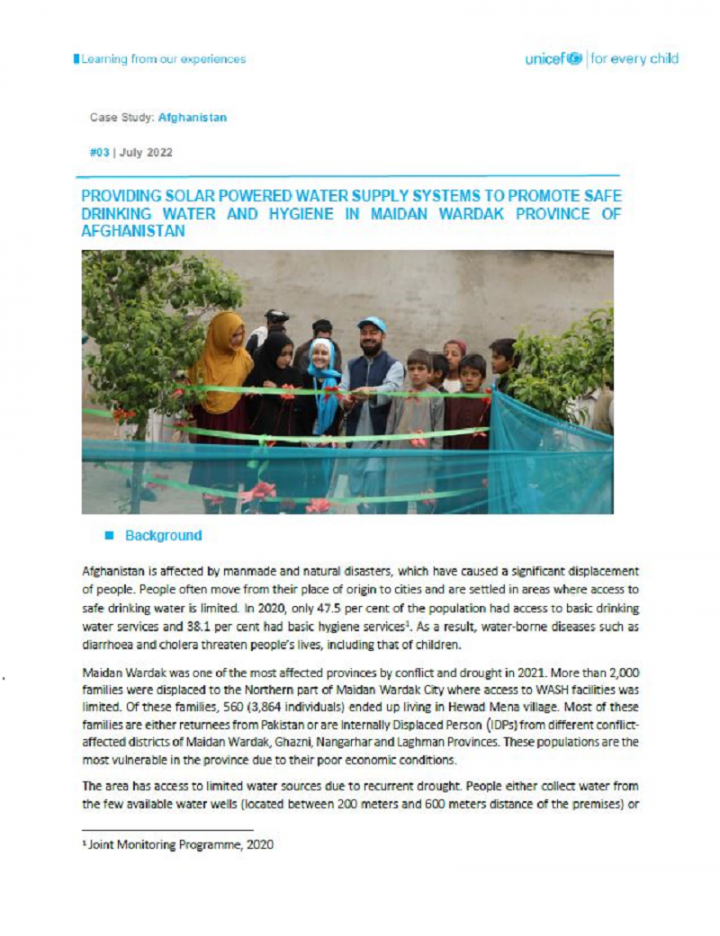PROVIDING SOLAR POWERED WATER SUPPLY SYSTEMS TO PROMOTE SAFE DRINKING WATER AND HYGIENE IN MAIDAN WARDAK PROVINCE OF AFGHANISTAN
Khalid Azami, M. (2022)

Published in: 2022
Pages: 4
Publisher:
UNICEF
Author:
Khalid Azami, M.
Uploaded by:
SuSanA Admin
594 Views
4 Downloads
Afghanistan is affected by manmade and natural disasters, which have caused a significant displacement of people. People often move from their place of origin to cities and are settled in areas where access to safe drinking water is limited. In 2020, only 47.5 per cent of the population had access to basic drinking water services and 38.1 per cent had basic hygiene services1. As a result, water-borne diseases such as diarrhoea and cholera threaten people’s lives, including that of children.
Maidan Wardak was one of the most affected provinces by conflict and drought in 2021. More than 2,000 families were displaced to the Northern part of Maidan Wardak City where access to WASH facilities was limited. Of these families, 560 (3,864 individuals) ended up living in Hewad Mena village. Most of these families are either returnees from Pakistan or are Internally Displaced Person (IDPs) from different conflict-affected districts of Maidan Wardak, Ghazni, Nangarhar and Laghman Provinces. These populations are the most vulnerable in the province due to their poor economic conditions.
Bibliographic information
Khalid Azami, M. (2022). PROVIDING SOLAR POWERED WATER SUPPLY SYSTEMS TO PROMOTE SAFE DRINKING WATER AND HYGIENE IN MAIDAN WARDAK PROVINCE OF AFGHANISTAN. UNICEF
Filter tags
English South Asia















